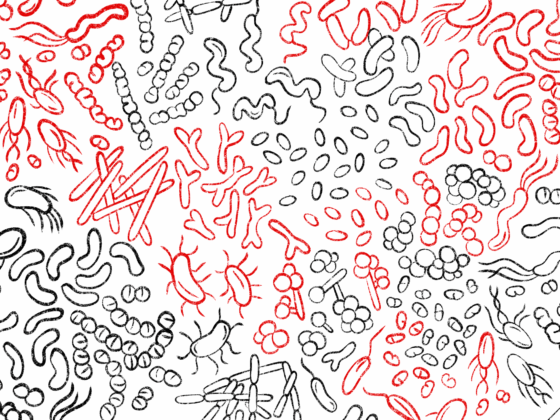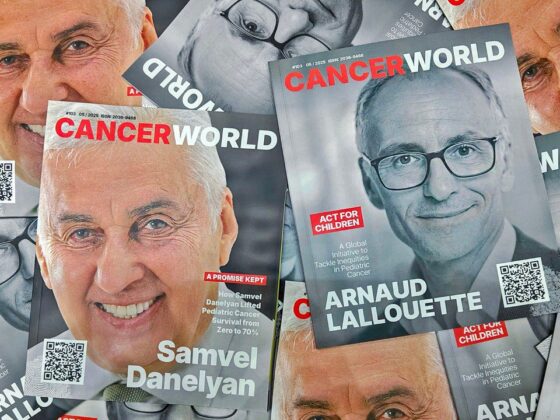Aerobic exercise can reduce the risk of developing metastatic cancer by 73%. Using both human epidemiological data and in vivo mouse models of melanoma metastasis, Israeli investigators report in Cancer Research (November 15) that high-intensity aerobic exercise increases glucose consumption by internal organs, thereby reducing the energy available for tumours to spread.
“Our results suggest that healthy individuals should also include high-intensity components in their fitness programmes,” study author Yftach Gepner told Cancerworld. “Physiologically, the more intense the physical activity, the more people will shift their metabolism to rely on glucose as opposed to fat. When people utilise a lot of glucose exercising, they prevent cancer from having a source of energy to grow.”
In recent years, correlations between physical activity and cancer have been extensively studied, with one epidemiologic study, published in JAMA Internal Medicine, involving 1.44 million participants, demonstrating that moderate/ vigorous leisure-time activity is associated with a significantly lower risk of cancer incidence and mortality. However, knowledge of the specific mechanisms by which exercise impacts cancer progression and metastasis has been limited. Since metastases are the principal cause of solid-tumour-related deaths, and physical activity is associated with lower risk for cancer mortality, a key question has been whether exercise can attenuate development of metastases?
Initially, Gepner and Carmit Levy, both from Tel Aviv University, became interested in exploring how muscle is resistant to developing metastatic cancer, reasoning that there is something about the activity of muscles that protects them from being common sites of metastasis. “From observations, there is no metastatic cancer in muscles. We thought maybe we can simulate muscle-like effects in internal organs to prevent metastatic cancer,” explains Gepner.
For the current study, Gepner and Levy hypothesised that exercise-induced metabolic reprogramming of organs transforms them into metastatic-resistant metabolic microenvironments by limiting nutrient availability to the cancer cells, thereby creating what they termed a ‘metabolic shield’.
There were two parts to the study. First, the investigators analysed a prospective cohort of 2,734 participants (1,302 females and 1,432 males), who were cancer-free at baseline, and followed them for 20 years to provide epidemiological data. From self-reported questionnaires, administered at baseline, information was available about intensity and duration of exercise. The cohort was linked to the Israel National Cancer Registry via national identification numbers, which provided Surveillance, Epidemiology, and End Results (SEER ) scores for individuals who went on to develop cancer, denotating their metastasis level (rated between 0 and 7).
Results showed that high-intensity exercise significantly reduced the incidence of highly metastatic cancers (73% risk reduction compared with the inactive group, P<0.05). “Our epidemiologic study illustrates the unique and significant interaction between exercise intensity and metastatic cancer development in humans,” write the authors.
Additionally, six subjects had blood samples collected before (following 48 hours of rest without exercise) and after they ran on a treadmill at high-intensity for 30 minutes (75% heart rate increase above baseline). Following exercise, a metabolomic analysis demonstrated that a metabolic shift towards glucose consumption occurred in both muscle and other organs.
To explore the protective role of exercise in preventing metastases and effects on internal organs, the investigators used a mouse model. First they trained mice with moderate and intense exercise and found that the glucose intake of internal organs of exercised mice increased to become more muscle-like in comparison with the control group, who did not exercise.
To follow tumour growth and spread, they used a murine Ret-melanoma cell line derived from a spontaneous melanoma in Ret-transgenic mice. Mice were divided into a sedentary group (control) and a group subjected to an exercise protocol (active group) who underwent training for eight weeks prior to the subdermal injection of melanoma cells.
First the team showed that exercise significantly reduced primary tumour growth, and second that, independent of primary tumour growth, exercise significantly reduced metastatic frequency and cell dissemination in lymph nodes, lungs and liver. Proteomic analyses of the organs of sacrificed animals showed that exercise induces catabolic processes, glucose uptake, mitochondrial activity and increased expression of glucose transporters.
“Collectively, these data suggest a clash between the metabolic plasticity of cancer, and exercise-induced metabolic reprogramming of the stroma, raising an opportunity to block metastasis by challenging the metabolic needs of the tumour,” write the authors.
In an accompanying commentary, Marwa Zerhouni and Elena Piskounova, from Weill Cornell Medicine, New York, write, “Overall, the study provides a more detailed understanding of the metastatic requirements in the context of energy and nutrient availability, and the impact of exercise on cancer progression, highlighting novel opportunities for therapeutic intervention.”
Deeper mechanistic insights into the metabolic balance and impact of physical activity on metabolic requirements of metastasising cells, they add, could enable scenarios in which host organs are able to outcompete cancer cells.
‘Exercise-oncology’ – combining exercise and oncological treatment in patients – is becoming recognised as a new field that could help optimise both existing and novel therapies, and be used in cancer prevention. Future studies, the authors believe, will provide information needed for clinicians to provide personalised exercise regimens to prevent cancer. “If someone has a family history of cancer, it would be possible to measure their metabolism doing exercise and then individually adjust exercise to achieve glucose levels capable of preventing spread of cancer,” explains Gepner.
Right now, he adds, high-intensity interval training offers a prevention strategy that people with family histories of cancer could incorporate into their daily routines. “Rather than exercising moderately, they should be pushing themselves to higher intensity exercise, doing activities like interval training, to achieve heart rates enabling glucose metabolism,” says Gepner.
In future studies, the team plan to recruit patients who have recovered from cancer to see whether high-intensity exercise reduces their risk of recurrence. “Cardiac exercise rehabilitation is well established for people who have had heart attacks and strokes. We hope to provide evidence on the types of exercise that are most beneficial to prevent cancer recurrence,” says Gepner.












